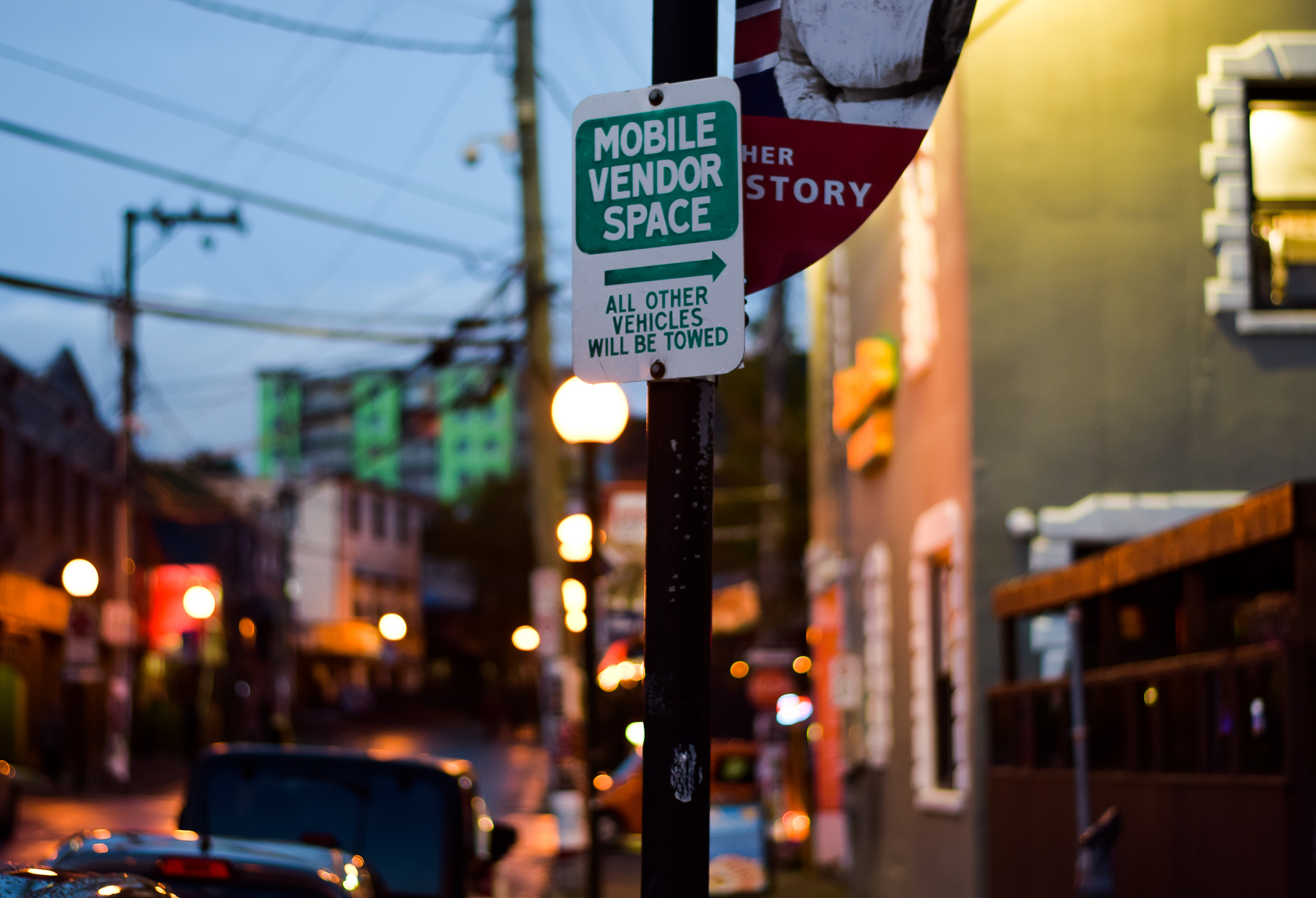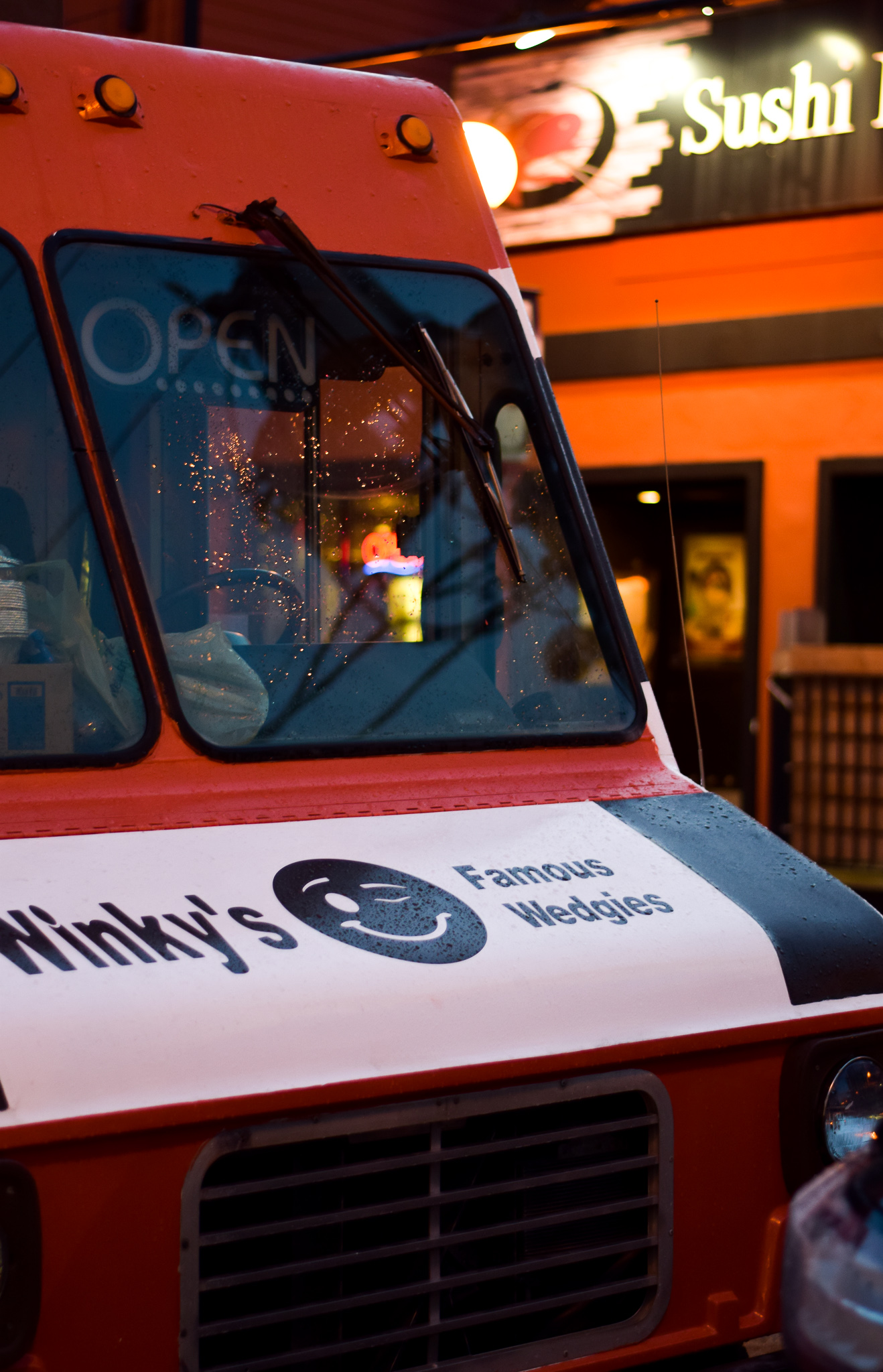Mobile food operators frustrated by the city of St. John’s regulations and red tape.

Ashley Sheppard
Kicker News
If you’re thinking about setting up shop in St John’s with a food truck in tow, former business owner, Kathie Hicks, says you might want to think again.
“The city doesn’t like it,” said Hicks. “They don’t support it or want to push for it, and they just charge you through the nose when you do want to open one.”
In 2014, Hicks saw potential in the city for a food truck culture. She wanted to offer a healthier alternative to the average chip truck. Thus, Happy Camper International Eats opened its order window to the city of St. John’s, only to close it two years later.
Hicks says she had no idea what she was getting into.
“It looks sexy and it looks fun,” said Hicks. “But, it’s a pretty big beast.”
There are many barriers to take into account, said Hicks, when considering mobile vending in the city.
To lease one of the six available spaces in the city to park a food truck for one year, it cost an average of $1,500- $3,000. An operator can also choose to park on private property or in one of the 14 temporary spaces located at Churchill Square. On top of that, you must own a $500 mobile vending license and $2 million in liability coverage.

But that’s not all. Vendors still can’t utilize a mobile license unless they have an operating commercial kitchen elsewhere.
An easy task for restaurants deciding to open up a truck on the side, Hicks says, but a major financial hurdle for others. City health and safety inspectors constantly police the trucks and even the attached commercial operations, according to Hicks.
Coun. Maggie Burton says the city is reviewing the mobile vending policies to make it more appealing.
“Things like the night market have encouraged more people to ask about setting up food and non-food related trucks,” said Burton. “And I think we need to have a further look at the policy to make sure we’re setting people up for success.”
She says a partial reason for the fees being so high has to do with the competition between traditional storefront business and mobile vendors.
“There have been complaints from traditional store owners that mobile vendors have an unfair advantage,” said Burton. “They set up in key locations downtown at a parking meter during the prime shopping season, but don’t pay taxes and don’t have overhead carrying costs.”
So, I want to see how we compare to other cities before I make the decision on what the fees should be. We’re definitely having that conversation right now.”
However, Burton says she recognizes the importance of small business and making all kinds of start-ups accessible.
“I’ve heard a lot from farmers who want to sell their goods, but the fees are just too high. So, I want to see how we compare to other cities before I make the decision on what the fees should be. We’re definitely having that conversation right now.”
Hicks says the red tape wrapped around mobile vending in St John’s right now is pushing business out of the city and into other communities with less complicated bylaws.
It’s a culture St. John’s should be a part of, says Hicks, despite the short summers and high winds.
“Food trucks add colour to a town,” said Hicks. “They add colour and culture.”




Once again, an amazing story. The detail and the challenges that vendor’s face is so good. The response from traditional business was also very good. I love reading your stories.